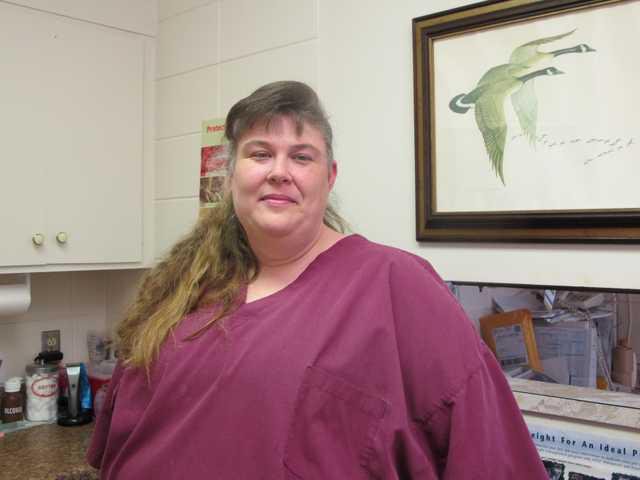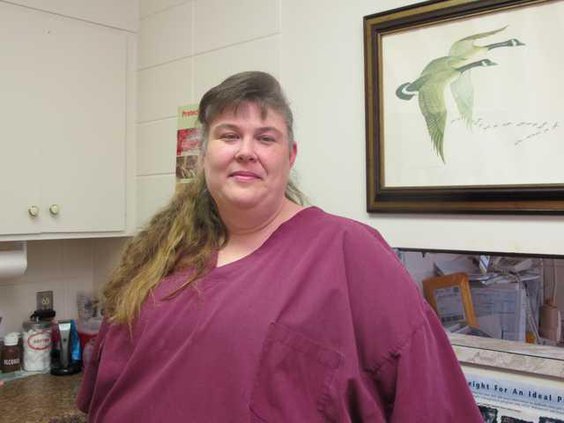Hinesville veterinarian Dr. Rachel Peeples is trying to warn pet owners about a new strain of parvovirus that is proving deadly to puppies.
Peeples said parvovirus is an immune deficiency that attacks a dog’s entire gastrointestinal tract. She said symptoms include a loss of appetite, vomiting and bloody diarrhea. If left untreated, the virus can be fatal, she said.
“Parvovirus is something we battle all the time,” Peeples said. “Death happens if they get severely dehydrated, electrolytes get severely off-balanced and a secondary bacterial infection sets in.”
She said the virus normally takes several days to become fatal, but the new strain is killing puppies within 24 hours.
“That’s what has us so worried,” she said. “Normally, it takes three to five days to cause death. Now what we’re seeing is the dog can be fine one day then dying the next.”
Peeples, a Bradwell Institute graduate who completed her doctorate in veterinary medicine at the University of Georgia in 2000, said the virus originally mutated from a parvovirus in cats, but cats cannot catch the canine virus. The first recorded cases of the canine parvovirus were nearly a century ago, she said.
The virus can live in the environment for six to 12 weeks, noting that it’s nearly impossible to destroy it in the natural environment. It can be destroyed on hard surfaces with bleach, however.
She said it gets washed in from sources like the feces of infected dogs at a dog park. Recent rains may be a possible source for the new strain, she said. She added that dogs have to ingest the virus through something they’ve eaten, drank or just chewed on.
Peeples admitted though she has not seen any cases of parvovirus this week.
“Parvovirus affects improperly vaccinated animals,” Peeples said. “I tell pet owners their puppies should get their shots around six to eight weeks old, getting a series every three weeks with the last series at 14 weeks. It’s probably a good idea to get one more at five or six months.”
In addition to the parvovirus vaccine, she said the complete series of vaccines for puppies include shots for distemper, canine hepatitis, parainfluenza, heart worms and rabies, which puppies should have at three months old.
She said a bacterial infection called leptospirosis is another issue her clinic is warning pet owners about. She said leptospirosis is something people and dogs can get. Medical professionals have associated the infection with standing water, which often contains the urine of infected animals.
Parvovirus remains her biggest concern, she said.
“Parvovirus is a very serious disease that affects unvaccinated or improperly vaccinated puppies and sometimes even adult (dogs),” Peeples concluded. “It’s important to protect your dog and make sure it goes through the full series of puppy shots. A problem that we run into frequently is that pet owners will get the first set of shots or first two sets of shot, but they don’t get the complete set of shots.
“They don’t realize it’s important to get the full set of shots... Another thing to remember is to be careful where you take your babies... We know you want them to get socialized... but you don’t want to expose them to something that’s going to overwhelm their natural immunity.”
Peeples clinic is located on 1094 E. Oglethorpe Highway. She and Dr. Maurice Sweat, whom she said is semi-retired, plus five veterinary assistants provide a full range of veterinary services. Pet owners with questions about their dog’s health are encouraged to call her at 876-3357.
Canine virus outbreak detected
Dog owners cautioned of strain particularly deadly to puppies


Sign up for our e-newsletters